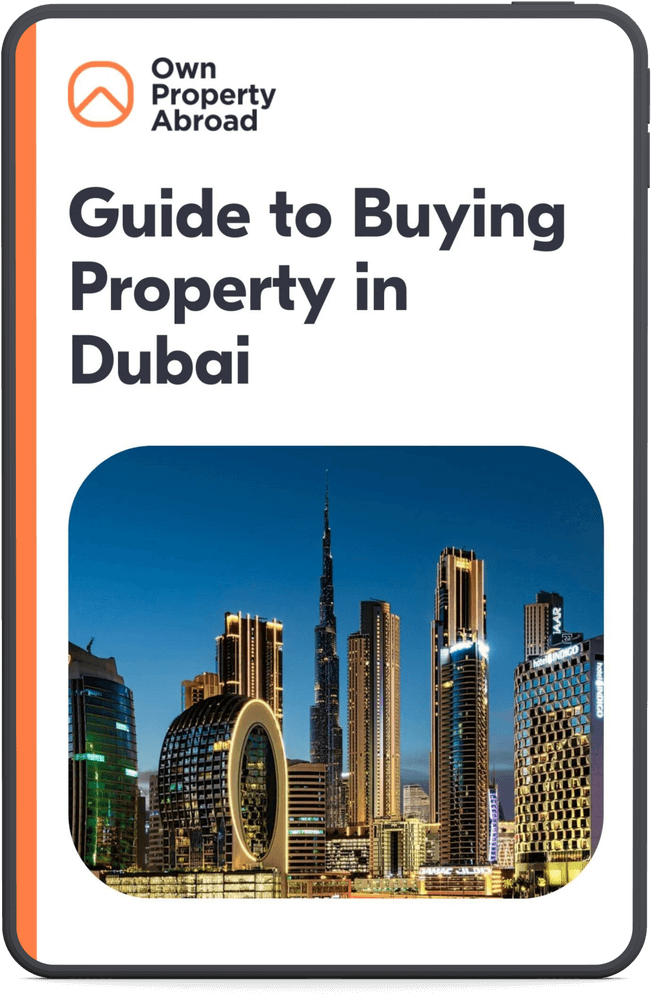Current market trends in Dubai real estate
Dubai, located in the northeastern United Arab Emirates and serving as the capital of the Emirate of Dubai, is renowned for its wealth, high living standards, and top-tier facilities. Dubai’s real estate market set a record in Q3 2024 with AED 141.9 billion ($38.64 billion) in sales, surpassing the previous peak of AED 124.7 billion ($33.96 billion) in Q2 and marking a 30.1% year-on-year increase. Apartments led the market with 39,058 sales totaling AED 70.5 billion ($19.2 billion), while villa sales reached 8,156 units at AED 39.2 billion ($10.67 billion). These data show why real estate in Dubai is a good investment, as the residential property price index reached 133.17 points. The average cost of properties in Dubai is AED 15,867 ($4,321) per square meter for houses and AED 24,248 ($6,603) for apartments. Commercial property investment in Dubai can cost anywhere from AED 330,000 ($89,859) to AED 400 million ($108.92 million).
Valuable insights and practical advice, distilled from years of expertise and real-world experience.


The city’s robust tourism sector is one of the driving forces behind why real estate in Dubai is a good investment. Dubai’s tourism soared in 2023, welcoming 17.15 million international visitors and increasing the city’s average hotel occupancy by 77.4% compared to the previous year. Moreover, Dubai’s real estate market is backed up by a thriving economy with a GDP reaching approximately AED 429 billion ($116.82 billion) in the same year. Dubai property market trends show a significant attraction to foreign investments, as foreign nationals account for roughly 43% of the total value of residential properties in the city. From 2020 to 2022, foreign-owned residential real estate increased by 20%, amounting to around $23 billion, proving real estate in Dubai a good investment for foreigners.
Benefits of investing in Dubai real estate
The UAE offers foreign nationals a range of advantages when investing in Dubai real estate. Below are some of the benefits of buying property in Dubai for foreigners.
1. No property taxes
Dubai has no property taxes, as the UAE does not impose taxes on property ownership. The UAE’s economy is primarily supported by its substantial oil and natural gas reserves, with oil revenues funding public services and infrastructure, minimizing Dubai’s need for property taxes. Dubai’s lack of property taxes allows investors to retain a larger share of their profits, increasing their overall ROI and making real estate in Dubai a good investment.
2. High rental yields
Another benefit that makes real estate in Dubai a good investment is the high rental yields. A report from Bayut, a prominent UAE-based real estate company, shows that the rental yield in Dubai real estate averages about 5.27%. Moreover, this high rental yield is an avenue to a potential accommodation and rental business. An Airbnb rental property in Dubai is booked for 252 nights annually, maintaining an average occupancy rate of 69% and earning an average daily rate of AED 598 ($163). In 2023, hosts typically earned an annual revenue of around AED 147,000 ($40,028).
3. Capital appreciation
Dubai’s real estate market has been significantly influenced by its ambitious urban developments, designed to establish the city as a leading global destination for luxury, innovation, and business. Infrastructure developments, such as the metro expansion and the Dubai-Al Ain Road upgrade, are making more areas accessible and convenient, boosting the value of neighboring properties. These developments make real estate in Dubai a good investment. Indicated in the rise of residential property values by 21.3% year-on-year and 5.3% quarter-on-quarter from April to June 2024, capital appreciation in Dubai is promising for those who want to venture into real estate.
4. Strategic location
Real estate in Dubai is a good investment due to its strategic location in the Middle East. It is within an eight-hour flight from much of Europe, Africa, and Asia, making it a prime base for multinational corporations and entrepreneurs targeting these markets. This benefit has increased demand for commercial and residential real estate as more visitors gather for business, particularly in areas like Business Bay and Downtown Dubai.
Risks and considerations
Before buying property in Dubai, it’s wise to consider the risks and possible downsides of investing in real estate in Dubai.
1. Market fluctuations
Although real estate in Dubai is a good investment, all real estate investments carry some risk, and the Dubai property market is no exception. It is susceptible to shifts in economic indicators, government policies, and oil prices, making the market quite volatile. Rapid fluctuations in property values can complicate investment planning. To mitigate these risks, investors should remain vigilant and take proactive measures, such as diversifying their investment portfolios, spreading investments across various areas of Dubai, and closely monitoring market trends.
2. Legal considerations
Investors should also consider that foreign investment in Dubai property is regulated. As such, there are specific zones where foreigners can purchase leasehold and freehold properties. The Dubai Land Department (DLD) oversees all real estate activities, including sales, rentals, and property registration, maintaining a stable and secure environment for local and international investors. When buying or selling property in Dubai, investors must adhere to several legal requirements, such as thorough due diligence. Moreover, the rental market is governed by strict tenancy laws, with rental agreements required to be registered through the Ejari system. Understanding and abiding by these legalities ensures that real estate in Dubai is a good investment.
3. Oversupply in certain areas
The law of supply suggests that producers are motivated to supply a more significant quantity to the market as prices increase. Similarly, when supply is limited, prices rise as buyers compete to secure scarce resources. The Dubai real estate market faces concerns about potential oversupply, with approximately 34,000 new units expected by year’s end and further increases in 2025 and 2026. Although real estate in Dubai is a good investment, the oversupply of real estate can cause a decline in property prices, which is less attractive for investments.
Valuable insights and practical advice, distilled from years of expertise and real-world experience.


Frequently Asked Questions (FAQs)
What are the pros and cons of investing in Dubai real estate?
The pros of investing in Dubai real estate include tax-free profits, high rental yields, and long-term residency incentives, thanks to the city’s pro-investment environment and strong infrastructure. However, investors should also consider the cons, such as market volatility, oversupply risks, and high transaction costs, which can impact profitability.
Is real estate in Dubai a good long-term investment?
Yes, real estate in Dubai is a good long-term investment due to the security provided by Dubai’s robust economy and high-value real estate market, plus the benefits of high rental yields, tax advantages, and ongoing infrastructure developments.
Can foreigners buy property in Dubai?
Yes, foreigners can buy property in Dubai, especially in designated freehold areas with full ownership rights, allowing them to buy, sell, or lease property at their discretion. Moreover, real estate in Dubai is a good investment for buying leasehold properties that can extend up to 99 years.
Which areas in Dubai offer the highest rental yields and return on investment?
Areas in Dubai such as International City, Jumeirah Village Circle (JVC), and Dubai Silicon Oasis offer some of the highest rental yields and returns on investment, with ROI percentages often exceeding the city’s average.
Is it worth investing in off-plan property in Dubai?
Investing in off-plan property in Dubai can be worthwhile due to lower entry prices and the potential for high returns. Still, it comes with risks like project delays, market fluctuations, and uncertain future property values.



